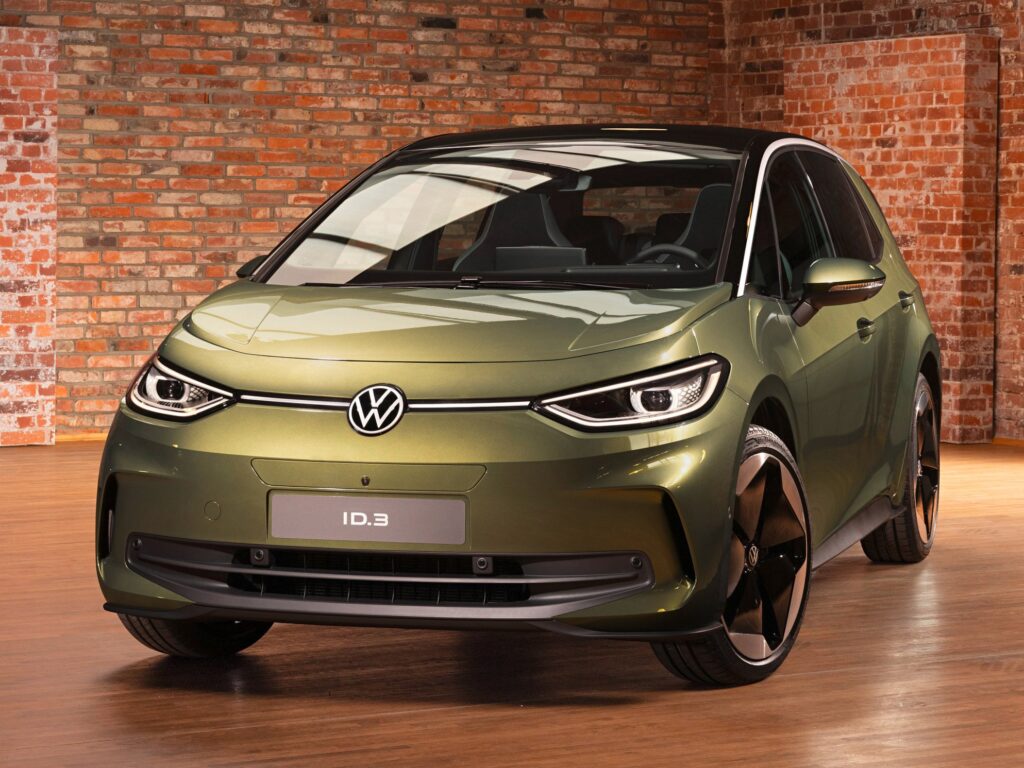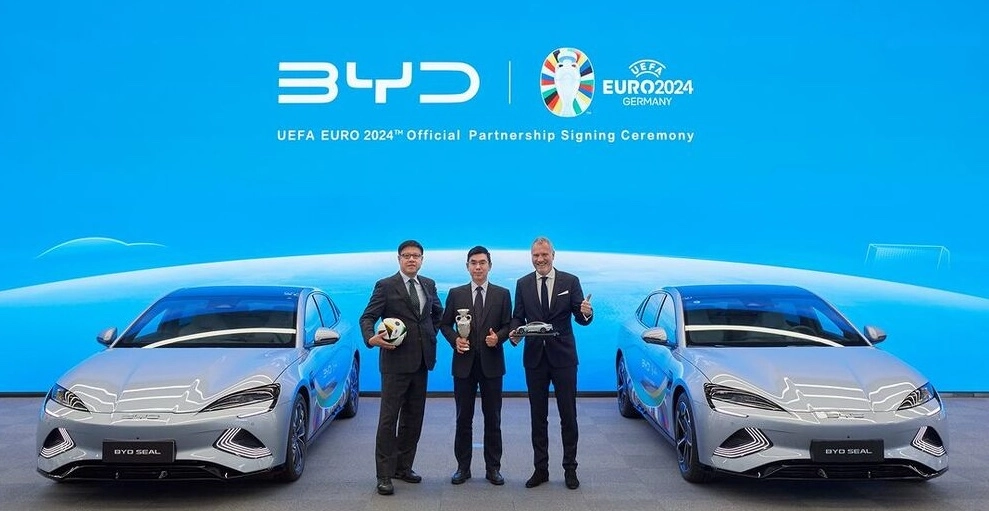The introduction of Asian electric vehicles (EVs) into the European market has become an increasingly palpable trend.
Manufacturers from China have significantly impacted the European Union industry through a strategy based on competitive pricing and advanced technology.
Eduardo Morejón, Country Manager Iberia at Road, a provider of electric vehicle charging platforms, stated that, “China is a real threat to German car manufacturers.”
This rise of Asian cars is not surprising considering that European manufacturers are just beginning the electrification of their vehicles, while their Asian counterparts have been immersed in this transition for years.
The striking thing is that BYD, the world’s leading electric car manufacturer, has become the official electric mobility partner of the UEFA European Football Championship 2024.
This sponsorship agreement marks a milestone as the first alternative energy vehicle manufacturer in the history of the tournament, which will take place in ten world-class stadiums in Germany from June 14 to July 14, 2024.
Another industry figure who took note of this fact was Glenn L’Heveder, Head of Sales and Business Development Europe at AMPECO, who posted on LinkedIn: “The Chinese BYD sponsoring EURO 2024…in Germany. More than a symbol?”
In this context, a question arises in the industry: Why not choose a local brand?
Germany, as one of the major global car producers, could promote its own industry and strengthen the national EV market by choosing a manufacturer like Volkswagen, as highlighted by gridX to Mobility Portal Europe.
However, the choice of the Chinese manufacturer is not arbitrary.
It is important to note that in December 2023, BYD positioned itself as the best-selling electric car manufacturer worldwide, surpassing even Tesla.
What factor placed it at the forefront in such a competitive market?
A key element could be the price of their vehicles.
Currently, this aspect has become a crucial point in the European market.
After the elimination of the environmental bonus, German producers have significantly reduced the cost of their vehicles, decreasing by up to 7,000 euros.
For example, the VW ID.3 is now available from 38,520 euros, while the BYD Atto 3 is priced at 37,990 euros.


This tight competition with the foreign market is reinforced by the discount campaign implemented by the Chinese manufacturer in 2023, reducing the final cost of their most popular EVs by up to 15 percent.
It is worth noting that one of the first markets where this strategy was implemented is the German market.
According to the Association of International Motor Vehicle Manufacturers (VDIK), “Chinese brands are gaining German market share,” going from having a 0 percent in 2019 to 1.18 percent in 2023, with progressive increases in recent years.
However, in January 2024, the top three importers were the Czech Skoda (with a market share of 7.8 percent), the Spanish Seat (4.7 percent), and the Japanese Toyota (3.1 percent), as reported by VDIK to Mobility Portal Europe.
Is price the sole determining factor?
From the industry’s perspective, it is argued that to prevail in the electric vehicle competition in Europe, it is not enough to maintain competitive prices.
It is equally crucial to adapt to market demands and offer distinctive sales and after-sales services.
Regarding Euro 2024, the question arises about additional measures that could be implemented to promote sustainable mobility and strengthen the national market.
A possible strategy would be to support the expansion of charging infrastructure and renewable energy near the facilities, incorporating energy storage.
Additionally, reducing reliance on individual cars through public transportation services could be a viable option.
This aspect encompasses not only the month during which the championship takes place but also throughout the rest of the year to promote the adoption of these cars.
Currently, there is a certain level of skepticism and uncertainty among potential eVehicle buyers.
GridX emphasizes that offering subsidies for EV purchases alone is not enough.
“It is equally important to promote incentives for the charging infrastructure of these cars,” it indicates.
In this regard, it emphasizes: “Since interest rates for loans are also high and there is no government financing, buying EVs is becoming truly expensive compared to internal combustion engine cars.”








